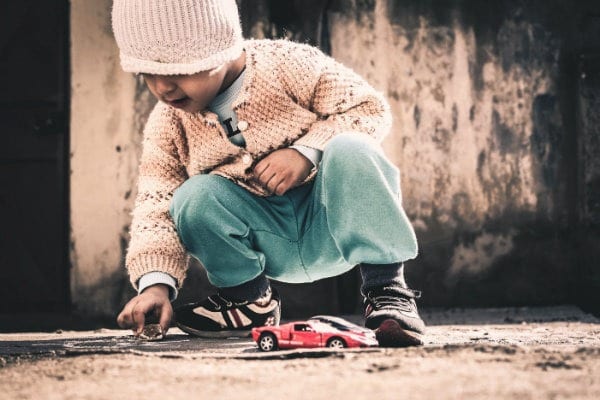I gave a snapshot of the figures, detailed how Australia fares compared to overseas peers and provided some analysis of how we can accelerate progress towards parity. I explained that while there might not be a single silver bullet that will immediately render men and women equal – politically, financially, socially – there is one cataclysmic change that has the potential to radically disrupt the status quo. It isn’t new and I’m far from original, or alone, in positing this but my view is that sharing the load at home – the cooking, the cleaning, the admin, the caring – is the game-changer for men and women. It is the domino that will enable a suite of other dominos to fall.
Its power is, in some ways, simply about time: when women undertake significantly more unpaid obligations at home than their male peers they are unable to contribute those hours at work. Making an adjustment on the home front will level the playing field at work. But it is also about culture: when the norm is for women to work less and take on more at home it confirms and perpetuates the biases about men and women.
While the more equitable division of labour at home is, technically, within reach, the reality is not so simple. Sharing the load at home directly challenges the world order many accept as constitutional.
I was reminded of this at the end of my speech in Townsville when we opened the floor to questions. The first woman to put her hand up explained that her granddaughter is expecting her first child – her great-grandchild – in a few months and it pains her that staying home with the baby is frowned upon. It’s all well and good for women to work, she said, but why is it that caring for small children is so undervalued? Why can’t we encourage mothers to take up that pursuit?
I answered the way I have answered similar questions before. In the utopic world that I envisage, when men and women are equal, children are not left to flounder without carers and mothers are not chained to their desks unable to ever see their offspring. (As an aside, in case you were wondering, I do begrudge having to specify that advocating for gender equality and wanting children to be loved and secure are not mutually exclusive.) I envisage a world where the loving, the feeding, the settling, the educating is shared between the parents, who are then able to both participate in paid work.
There are many reasons this is optimal but a significant one is that there is a heavy price attached to one person being solely responsible for all aspects of caregiving. As Elizabeth Broderick so aptly framed it: “Too often the price women pay for a lifetime spent caring is poverty”.
So in the same way that I don’t want anyone’s child, grandchild or great grandchild to be neglected, I also don’t want someone’s daughter, granddaughter or great-granddaughter to be unnecessarily burdened by the financial vulnerability that not working can present. My solution, seeing as though I was asked, was to suggest her granddaughter’s partner also takes on responsibility – in practical terms – for the caring of their baby.
The other aspect of her question however needed further dissection: caregiving is desperately undervalued.
Why else would early childhood educators, who undertake work that is challenging, intense, messy, loud, lonely and isolating, have to fight for a living wage?
As Lisa Bryant wrote for the ABC this week, educators earn as little as $21 an hour while the average Australian wage is around $42 an hour. Early childhood educators, 97% of whom are women, have gone on strike three times recently but have failed to get the pay they need and deserve. It is unlikely it will happen anytime soon.
It is symptomatic of a world that fails to value the invaluable work of caring for small people, which is maddening when you consider the reams of research that confirm the benefits associated with high-quality early education and care. It is the ultimate win-win for government, business and families: not only does high quality early education boost myriad outcomes for children, with long-term benefits, it assists families in being able to work.
The provision of excellent early education and care forms another critical component in the utopic gender equal world of my dreams: where men and women can more readily combine their work and family, safe in the knowledge their children are being cared for and taught in the most optimal of settings. Where the educators on the frontline are remunerated fairly, feel compelled to stay in the vocation and know they are valued and respected.
At present the opposite is true which is why educators are, and will continue to, flee the sector in droves and we will all lose because of it. Until we start to value care there is little hope of that changing. One perverse possibility is that when men start doing more caring its perceived value may well increase. It’s not ideal but it’s another reason I’m confident that sharing the load at home is the silver bullet gender equality needs.


